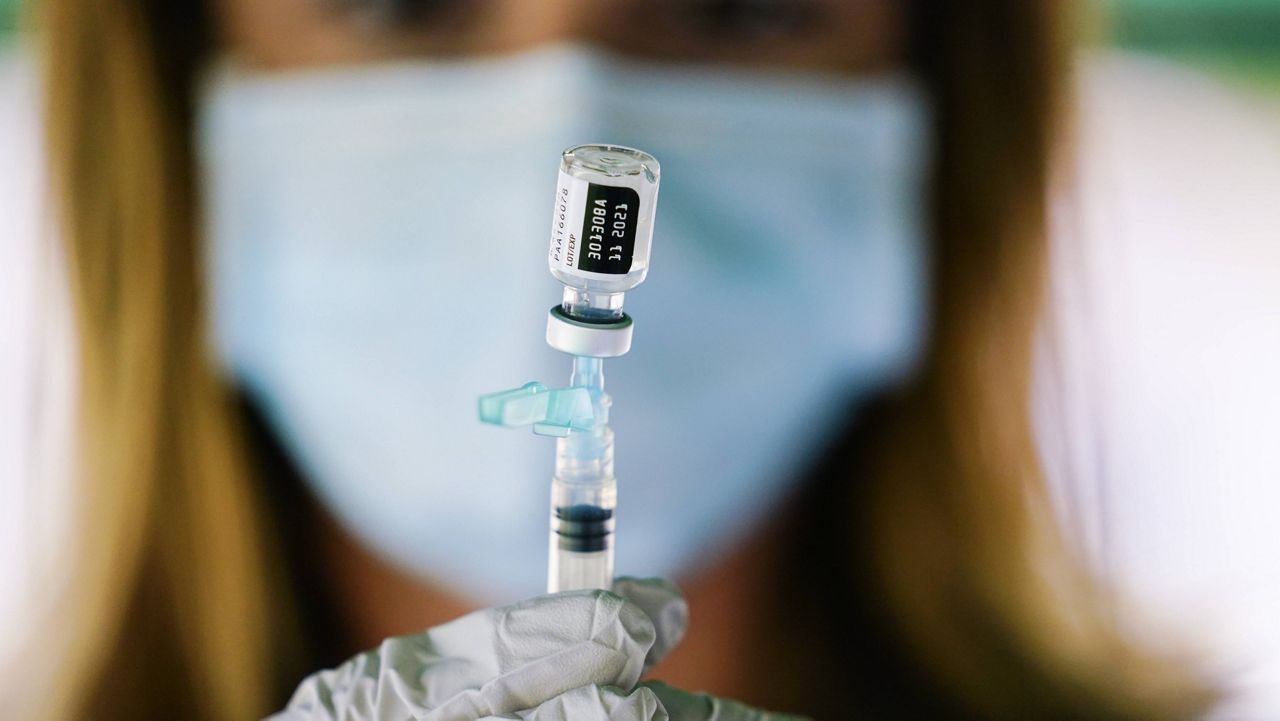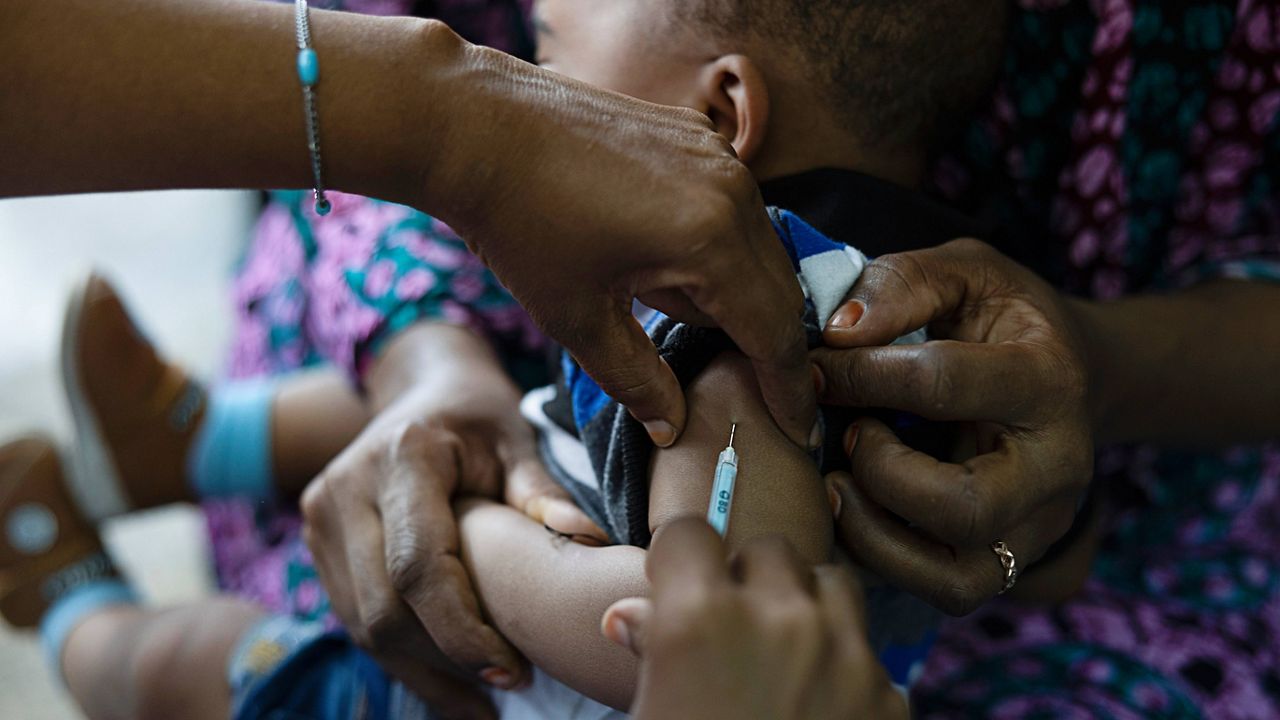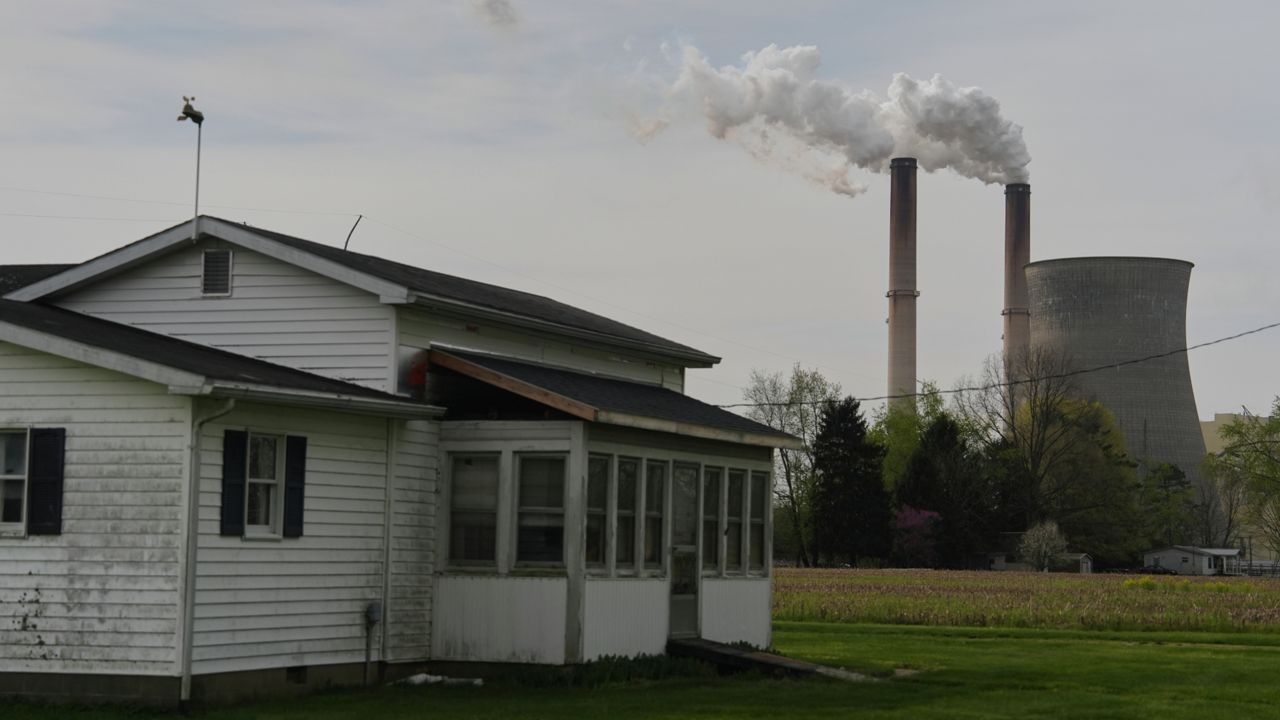A key Centers for Disease Control (CDC) advisory panel voted unanimously to back a third booster dose of the Pfizer-BioNTech's COVID-19 vaccine for Americans 65 years of age and older and those living in long term care facilities.
They also separately voted in favor of boosters for Americans 18 to 64 with underlying medical conditions that may put them at higher risk of severe disease.
CDC Director Dr. Rochelle Walensky signed off on the recommendations late Thursday, but overruled the panel by making one recommendaion they rejected.
CDC panelists did not, vote to recommend the extra dose for people in high-risk professions, such as health care workers or teachers, a group that the FDA panel did approve boosters for. But Dr. Walensky overruled the panel and added that recommendation, citing that the guidance aligns with that of the FDA panel.
The category she included covers people who live in institutional settings that increase their risk of exposure, such as prisons or homeless shelters, as well as health care workers.
“As CDC Director, it is my job to recognize where our actions can have the greatest impact,” Dr. Walensky wrote in a statement. “At CDC, we are tasked with analyzing complex, often imperfect data to make concrete recommendations that optimize health. In a pandemic, even with uncertainty, we must take actions that we anticipate will do the greatest good.”
"I believe we can best serve the nation’s public health needs by providing booster doses for the elderly, those in long-term care facilities, people with underlying medical conditions, and for adults at high risk of disease from occupational and institutional exposures to COVID-19," she continued. "This aligns with the FDA’s booster authorization and makes these groups eligible for a booster shot."
The additional dose for approved groups would be administered at least six months after a person's last shot of the Pfizer-BioNTech vaccine.
The news came one day after the Food and Drug Administration (FDA) authorized the booster doses. The Biden administration had already been preparing for their rollout as early as Monday. While the decision is a major scaling back of President Joe Biden's initial plan to make boosters widely available, it is a major step forward in the United States' efforts to shore up protection in the face of the highly contagious delta variant.
Walensky opened Thursday’s meeting by stressing that vaccinating the unvaccinated remains the top goal “here in America and around the world.”
Walensky acknowledged that the data on who really needs a booster right away “are not perfect.” “Yet collectively they form a picture for us,” she said, “and they are what we have in this moment to make a decision about the next stage in this pandemic.”
The CDC panel stressed that its recommendations will be changed if new evidence shows more people need a booster.
The move follows that of countries like Israel and Britain, who are already providing boosters despite the World Health Organization's objections.
The approval of Pfizer's booster shot is sure to create confusion for Americans who got the Moderna or Johnson & Johnson vaccines early on, an issue some advisers brought up in the Advisory Committee on Immunization Practices meeting Thursday.
"Today, ACIP only reviewed data for the Pfizer-BioNTech vaccine," Walensky wrote in a statement. "We will address, with the same sense of urgency, recommendations for the Moderna and J&J vaccines as soon as those data are available."
The government still hasn’t considered boosters for those brands and has no data on whether it’s safe or effective to mix-and-match and give those people a Pfizer shot.
“I just don’t understand how later this afternoon we can say to people 65 and older you’re at risk for severe illness and death but only half of you can protect yourselves right now,” said Dr. Sarah Long of Drexel University.
But for most people, if you’re not in a group recommended for a booster, “it’s really because we think you’re well-protected,” said Dr. Matthew Daley of Kaiser Permanente Colorado. “This isn’t about who deserves a booster, but who needs a booster.”
About 26 million Americans got their last Pfizer dose at least six months ago, about half of whom are 65 or older. It’s not clear how many more would meet the CDC panel’s booster qualifications.
The COVID-19 vaccines used in the U.S. still offer strong protection against severe illness, hospitalization and death, but immunity against milder infection appears to be waning months after people’s initial vaccination.
The widespread dispensing of the boosters would represent an important new phase in the nation’s vaccination drive. Britain and Israel are already rolling out a third round of shots over strong objections from the World Health Organization that poor countries don’t have enough for their initial doses.
The priority still is vaccinating the unvaccinated “here in America and around the world,” CDC Director Dr. Rochelle Walensky told the meeting.
She acknowledged that the data on boosters “are not perfect.” “Yet collectively they form a picture for us,” she said, “and they are what we have in this moment to make a decision about the next stage in this pandemic.”
The FDA rejected a sweeping Biden administration plan announced a month ago to offer boosters to the general population, instead embracing a more targeted approach for now. Acting FDA Commissioner Dr. Janet Woodcock cautioned that booster decisions could very well change as real-world data come in.
“As we learn more about the safety and effectiveness of COVID-19 vaccines, including the use of a booster dose, we will continue to evaluate the rapidly changing science and keep the public informed,” Woodcock said.
The CDC panel on Thursday also wrestled with how to tell when a booster is needed. While an extra dose revs up numbers of virus-fighting antibodies, those naturally wane over time and no one knows how long the antibody boost from a third Pfizer dose will last -- or how much protection it really adds since the immune system also forms additional defenses after vaccination.
The U.S. has already authorized third doses of the Pfizer and Moderna vaccines for certain people with weakened immune systems, such as cancer patients and transplant recipients. Other Americans, healthy or not, have managed to get boosters, in some cases simply by asking.
The Associated Press contributed to this report.










